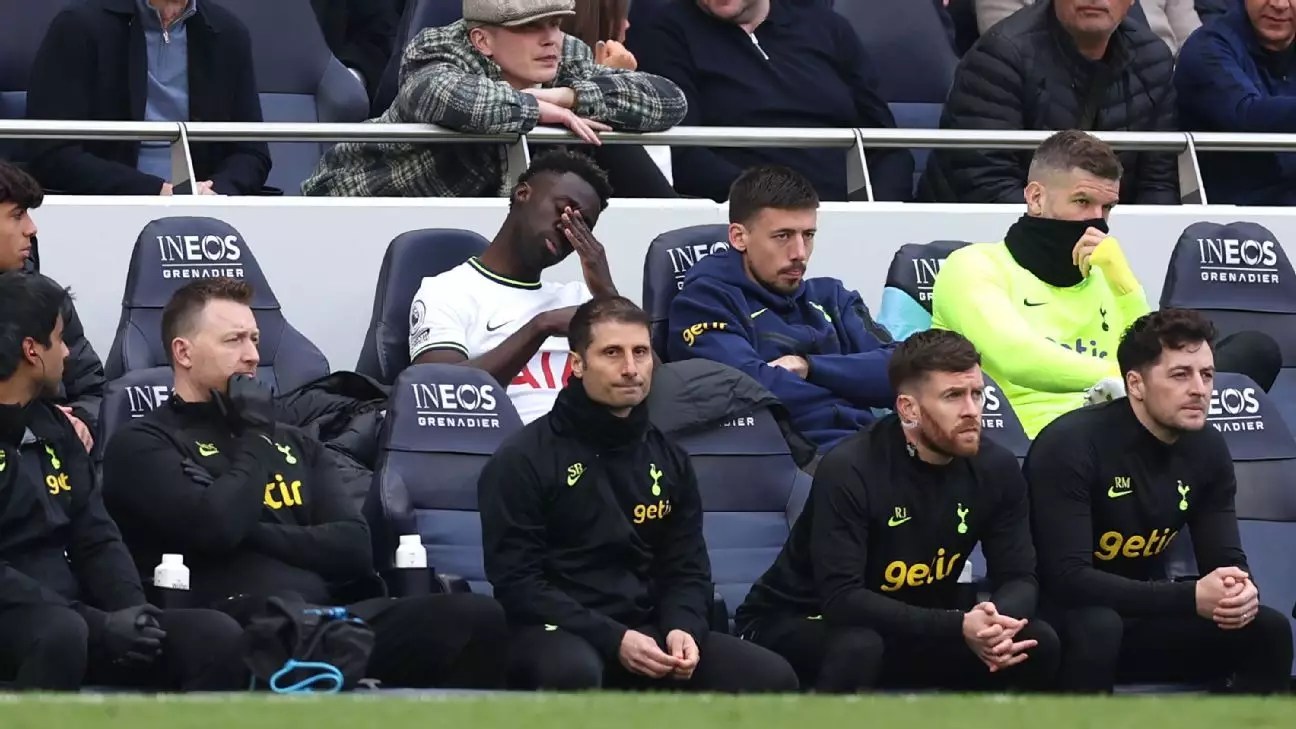The landscape of sports sponsorships is fraught with complexities, and INEOS, a petrochemical behemoth with a significant stake in Manchester United, seems to be at a crossroads. Recent reports indicate that INEOS is initiating talks to prematurely terminate its sponsorship agreement with Tottenham Hotspur, a deal established only a year ago. This decision appears rooted not only in financial recalibrations but also in broader strategic considerations about the company’s engagement in the sports sector.
The partnership with Tottenham, designed to spotlight their 4×4 Grenadier vehicle, was highlighted through conspicuous branding at the club’s home stadium. However, recent events, including a lackluster match against Ruben Amorim’s side, have likely contributed to the re-evaluation of this relationship. The talks for an early exit reflect a broader trend where companies are reassessing the monetary value of their sponsorship investments in light of changing economic landscapes.
INEOS’s financial maneuvers are not isolated to the Tottenham deal; the company has faced considerable scrutiny after announcing its withdrawal from a lucrative sponsorship with New Zealand Rugby. This partnership, valued at £3.7 million annually, was expected to last until 2027 but was terminated with indications that the “deindustrialization of Europe” justified the abrupt decision. Such high-profile departures from sponsorship arrangements convey a strong message: the pressures of economic shifts are prompting companies to rethink their commitments.
This sentiment echoes through various sectors. The company’s separation from Sir Ben Ainslie’s America’s Cup team, coupled with the nearly severed ties with Mercedes in Formula 1, reflects a broader strategy of retrenchment. Each withdrawal raises questions not only about INEOS’s financial health but also about the future of the sports teams caught in this turbulent tide.
As INEOS celebrates a year as co-owner of Manchester United, the club itself is grappling with its own financial turmoil. Recent quarterly accounts revealed a startling drop in operating profit from £27.5 million to a mere £3 million, a decline that speaks to the financial disarray the club has been experiencing. This costly backdrop is compounded by the management decisions made under Erik Ten Hag, whose early-season dismissal cost the club £10.4 million mere weeks after securing his new contract.
The ripple effects of these financial decisions extend beyond just operational costs; they hint at potential staffing reductions and a reevaluation of the club’s strategic priorities. With the sponsorship landscape under pressure, and the necessity for a sustainable financial model becoming imperative, Manchester United and its co-owners are being forced to make tough choices.
The moves by INEOS signal an era of caution within high-stakes sponsorship and partnerships in professional sports. As economic conditions fluctuate, the emphasis on sustainable, beneficial partnerships will likely become paramount for organizations aiming to weather the storms of financial uncertainty. For both INEOS and Manchester United, the challenge lies in not only navigating these changes but also in redefining their operational identity in a way that aligns financial viability with their ambitious sporting objectives.
The evolving dynamics of sports sponsorships, encapsulated by INEOS’s recent decisions, illuminate a shift that could reverberate throughout professional sports, prompting teams and sponsors alike to tread carefully in uncertain waters.


Leave a Reply